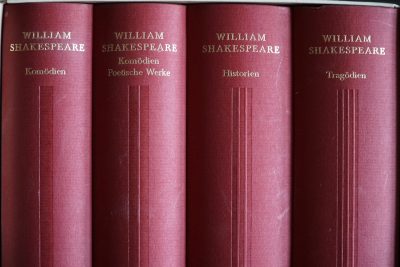Today’s Post is a Q&A with a new member of the EMSWG. Dr. Kaveh Yazdani is an Assistant Professor at the Department of History.
- Can you tell us a bit about your background (academic and otherwise)? Where are you from? Where else have you taught, researched, etc?
I was born in Tehran (Iran) and raised in Paris and Berlin. I studied history and philosophy at the Humboldt and Free Universities in Berlin, Germany. During my MA I got an Erasmus grant and went to Granada (Spain) as an exchange student for a year. I received my Master’s degree from Humboldt University in 2008 and a Ph.D degree from the University of Osnabrueck in 2014. For my dissertation, which focused on pre-colonial India, I conducted research in several Indian archives (i.e. in Delhi, Mumbai, Hyderabad, Chennai) for about six months between 2012 and 2013 and also spent several months doing research in Paris, London and Halle. In 2015, I obtained a postdoctoral fellowship at the International Institute of Social History (IISH) in Amsterdam. In late 2015, I was granted a 2-year postdoctoral research fellowship at the Centre for Indian Studies in Africa (CISA), University of the Witwatersrand, Johannesburg, South Africa. In 2017, I was a Visiting Residential Fellow at the Warwick Institute of Advanced Study (UK). Between 2017 and 2020 I became a faculty member at the University of Bielefeld (Germany) and taught courses in economic and social history. In 2020, I was also Visiting Professor in Global Economic and Social History at the University of Vienna (Austria).
- Can you tell us about your previous works/projects?
In both my Master’s and doctoral theses, I grappled with the “great divergence” debate. I tried to find out why the Industrial Revolution took off in England and not in India. To be more precise, I enquired into the question why two of the most dynamic regions of 17th and 18th century South Asia, i.e. Gujarat (in northwestern India) and Mysore (in southern India), did not industrialize first, how “modern” they were in comparison to advanced parts of Europe and I further examined the impact of early colonial rule in India. The monograph was published by Brill in 2017 and is titled India, Modernity and the Great Divergence. Mysore and Gujarat (17th to 19th C.). In 2020, my former supervisor in Johannesburg and now friend Prof. Dilip Menon and I published an edited volume titled Capitalisms: Towards a Global History with Oxford University Press.
- What are your current projects?
I am currently working on a revised version of my first book that will be published with Primus Books in India. Unfortunately, the first edition of my book that was published by Brill costs $246 and is obviously inaccessible to most people. The new edition will hopefully allow a larger number of interested readers to purchase the book. Apart from that, I’m working on a monograph with my esteemed mentor Nasser Mohajer on the socio-economic relationships and connections between the Zoroastrians of Persia and Parsis of India between the 17th and early 20th centuries. I’m also working on a number of papers related to conceptual history, namely a Begriffsgeschichte/historical semantics of the terms capital, capitalist and capitalism as well as discourses on free and unfree labor between the 17th and early 20th centuries.
- What sparked your interest in pursuing your current project?
The book project on the Zoroastrians emanated from my interest in the spectacular rise of the Parsi community in India as the subcontinent’s leading 19th century capitalists and modernizers and a dearth of work on the socio-economic relationships between the Parsis and their coreligionists in Persia. My interest in capitalism goes back to when I still was a teenager and has a lot to do with my fascination with questions related to the multifaceted reasons behind inequality, asymmetrical global power relations and the underlying historical dimensions of the modern world.
- What are your other interests? (As a scholar or otherwise—everyday preoccupations, hobbies, grand ambitions, etc.?) Do these other interests inform your research in some way and, if so, how?
I’m very much interested in theories of modernity and the periodization of global history in a longue durée perspective. I’m also closely following publications in the fields of Indian Ocean studies, comparisons and entanglements between the Mughals, Ottomans and Safavids as well as global labor history, especially works on labor relations that span from slavery to wage labor. Last but not least, I’m intrigued by works on the Persianate world spanning from East Africa to Northwestern China. I do have a number of diversions but, unfortunately, due to time constraints, I often only have enough time to follow the news and feuilleton, talk to my loved ones, watch movies or listen to music once in a while. Indeed, the sidelines I pursue help me to better understand the present continuities and ruptures of the historical processes that I study. But more importantly, along with the privilege of being able to visit new places in the course of doing research in archives or giving lectures and meeting new people, they give me strength, help me to get out of my bubble and connect to the world that I live in.
 opportunity
opportunity